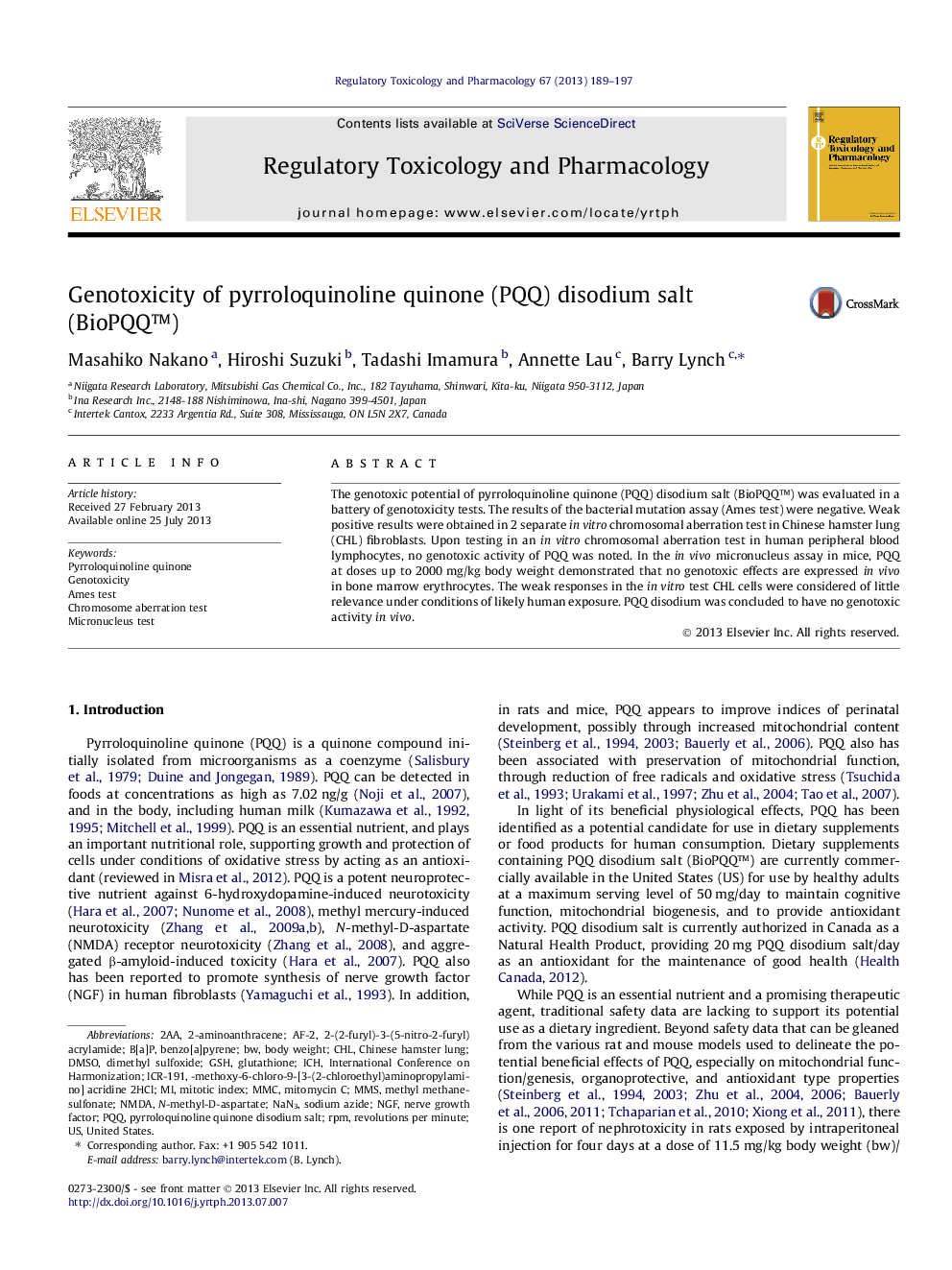| Article ID | Journal | Published Year | Pages | File Type |
|---|---|---|---|---|
| 5856821 | Regulatory Toxicology and Pharmacology | 2013 | 9 Pages |
Abstract
The genotoxic potential of pyrroloquinoline quinone (PQQ) disodium salt (BioPQQâ¢) was evaluated in a battery of genotoxicity tests. The results of the bacterial mutation assay (Ames test) were negative. Weak positive results were obtained in 2 separate in vitro chromosomal aberration test in Chinese hamster lung (CHL) fibroblasts. Upon testing in an in vitro chromosomal aberration test in human peripheral blood lymphocytes, no genotoxic activity of PQQ was noted. In the in vivo micronucleus assay in mice, PQQ at doses up to 2000 mg/kg body weight demonstrated that no genotoxic effects are expressed in vivo in bone marrow erythrocytes. The weak responses in the in vitro test CHL cells were considered of little relevance under conditions of likely human exposure. PQQ disodium was concluded to have no genotoxic activity in vivo.
Keywords
AF-2N-methyl-d-aspartateNMDAMMSPQQNGFMitomycin C2-aminoanthracene2AAChlGSHNaN3MMCRPMICR-191B[a]PDMSOChromosome aberration testMicronucleus testUnited StatesBenzo[a]pyreneAmes testDimethyl sulfoxideChinese hamster lungsodium aziderevolutions per minuteGenotoxicitymitotic indexnerve growth factormethyl methanesulfonateICHbody weightPyrroloquinoline quinoneInternational Conference on HarmonizationGlutathione
Related Topics
Life Sciences
Environmental Science
Health, Toxicology and Mutagenesis
Authors
Masahiko Nakano, Hiroshi Suzuki, Tadashi Imamura, Annette Lau, Barry Lynch,
